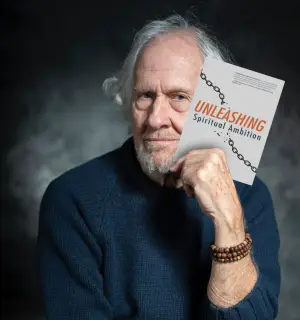As a devoted reader, I often find myself drawn to historical fiction, especially stories that delve into the complexities of war and its aftermath. When I stumbled upon “Night Watch” by Jayne Anne Phillips, I was intrigued by its premise: a mother and daughter navigating the chaos of post-Civil War America, seeking refuge in a lunatic asylum. The description hinted at deep familial bonds and the resilience of women in the face of overwhelming trauma, which drew me in.
The book is set in 1874 and follows twelve-year-old ConaLee and her mother, Eliza, who has been rendered mute by the trauma of their experiences. Their story unfolds in the aftermath of the Civil War, with erasure and namelessness haunting many of the characters, including a war veteran who delivers them to the Trans-Allegheny Lunatic Asylum, where they hope to reclaim a semblance of their former lives. Phillips’s prose is beautifully evocative; numerous readers have noted how effectively she captivates with her lyrical style. I found it immersive and often felt as though I were journeying alongside ConaLee, experiencing the emotional highs and lows she encounters—something well echoed in Miss K’s review, who described it as “the best book I’ve read in some time.”
One of the most compelling aspects of “Night Watch” is its exploration of character development and the endurance of women. Phillips creates a stunning array of characters, each with their own stories of trauma and resilience, making it easy to become emotionally invested. Readers are whisked into the lives of not only ConaLee and Eliza but also the Night Watch and a young orphan named Weed. These interactions enrich the narrative and serve to highlight themes of familial bonds and healing amidst chaos. In a world heavily affected by war and societal upheaval, Phillips’s portrayal of survival and connection truly stands out, making it a memorable read.
However, it’s essential to acknowledge that the narrative structure can be disorienting. The non-linear timeline and the constant shifts between 1864 and 1874 might confuse some readers, as LindaL pointed out in her review. I, too, found myself grappling with the fragmented timelines at the beginning, trying to piece together the characters’ backstories and their connection to one another. If you prefer a straightforward narrative, you might find yourself feeling lost at times.
Another drawback I encountered was the graphic nature of some scenes. The descriptions of violence and trauma are unflinching, which amplifies the emotional impact but may be overwhelming for some readers. I appreciated the raw honesty with which Phillips approached these topics, reflecting the harsh realities of the era. Still, it might deter sensitive readers or those looking for a lighter experience.
As I progressed through the book, I often thought of the critical acclaim it has received, including winning the Pulitzer Prize and being longlisted for the National Book Award. The richness of the prose, alongside the poignant social commentaries woven into the fabric of the story, set significant stakes. Still, there were moments, especially towards the end, where I felt that the narrative began to unravel, similar to what Jason Adams articulated regarding the ending feeling rushed and almost tacked-on.
Overall, “Night Watch” is a beautifully written exploration of trauma, resilience, and the complexity of human relationships in the shadow of the Civil War. While it is not without its challenges, particularly in terms of narrative structure and pacing, the richness of Phillips’s characters and her evocative prose made it an enriching reading experience for me.
If you’re intrigued by historical fiction that challenges the reader while also delivering profound insights into the human condition, I highly recommend “Night Watch.” It’s a worthy addition to any bookshelf that values depth, character exploration, and a reflection on the scars that war leaves behind. My overall rating is a solid 4.5 stars—while it has its rough edges, it’s a thought-provoking read that stays with you long after the last page.








